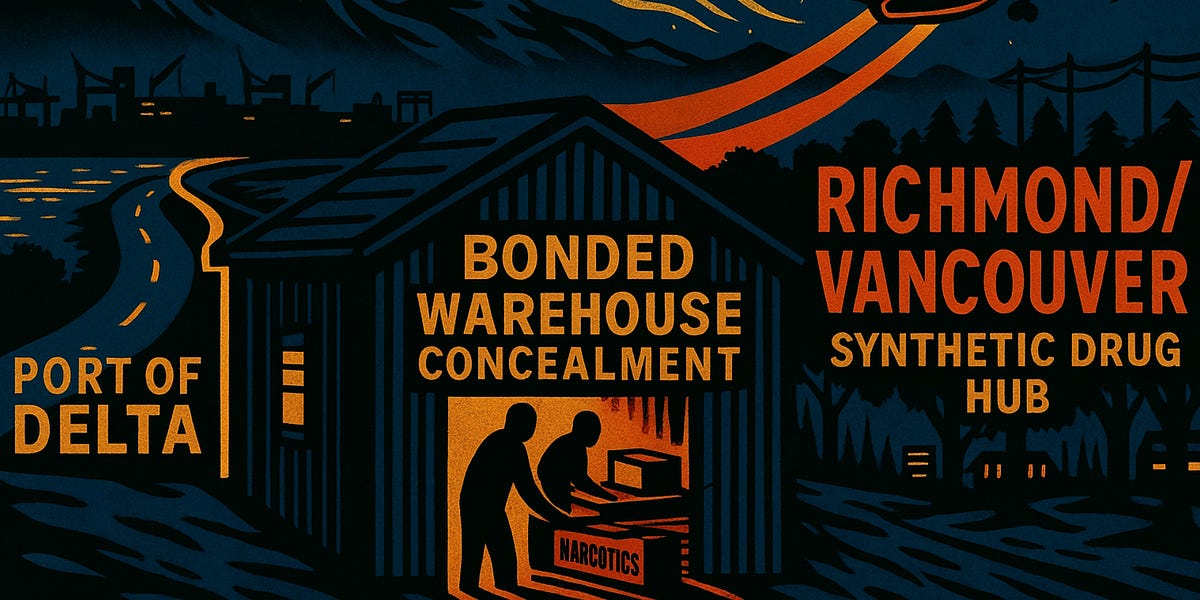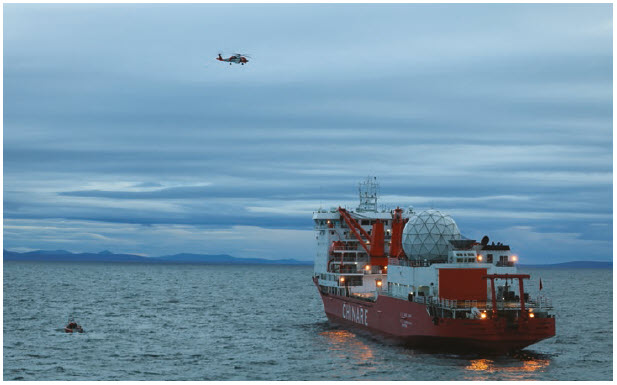You are using an out of date browser. It may not display this or other websites correctly.
You should upgrade or use an alternative browser.
You should upgrade or use an alternative browser.
British Columbia NDP Majority Government 2024-(no later than) 2029
- Thread starter RangerRay
- Start date
- Reaction score
- 4,406
- Points
- 1,160
Outside of a few special interest group clusters, theres not much support for any of it. And next to zero support for this land claim business.I wonder how much sympathy the natives have lost as a result of this.
It will be interesting to see what happens if they decide to blockade a pipeline.
daftandbarmy
Army.ca Fossil
- Reaction score
- 42,558
- Points
- 1,160
- Reaction score
- 4,406
- Points
- 1,160
The one that said “you commie bastard!” Lol
daftandbarmy
Army.ca Fossil
- Reaction score
- 42,558
- Points
- 1,160
Halifax Tar
Army.ca Legend
- Reaction score
- 16,835
- Points
- 1,260
Interesting

 www.readthepeak.com
www.readthepeak.com
This is what AI had to say:


U.S. Indigenous group claims rights to B.C. land
An Indigenous group in Washington state is l...
This is what AI had to say:

- Reaction score
- 2,171
- Points
- 1,160
After the Battle of the Little Big Horn, Sitting Bull, the Sioux/Cheyanne et al wandered into Saskatchewan. They hunted, buried some of their deceased, etc, Do they have a claim?
- Reaction score
- 11,785
- Points
- 1,160
After the Battle of the Little Big Horn, Sitting Bull, the Sioux/Cheyanne et al wandered into Saskatchewan. They hunted, buried some of their deceased, etc, Do they have a claim?
I have in-laws in Willow Bunch...
.......
Stay with me on this one....

U.S. Government Was Aware of Massive Chinese Fentanyl Seizure in Vancouver Long Before Ottawa Disclosure: Source
New half-tonne meth-coke export seizure underscores how Vancouver’s bonded warehouses and export corridors have become a blind spot in the global import-export narco-economy.
There has been quiet discussion among U.S. officials about the sincerity and pace of Ottawa’s response. One U.S. official familiar with the matter said fentanyl czar Kevin Brosseau’s recent talks with American counterparts suggest his office has an increasingly strong grasp of the transnational dynamics and that Canadian agencies are making good-faith efforts to strengthen investigations and enforcement posture.
“We are still trying to fix the relationship, but they are trying,” the official said. “But they don’t seem to be able to fully target the super-labs we know are operating, and the shipments of fentanyl that go up to Vancouver and then get sent down to the U.S. West Coast — including in bonded cargo.”
A Canadian enforcement source explained that bonded cargo allows container shippers to bypass routine search hurdles. The number of these facilities — and their proximity to known Asian organized-crime networks and vulnerable areas near First Nations lands surrounding the Vancouver port region — is a major factor in the city’s role in the Western Hemisphere narcotics trade. “The more of these bonded warehouses that you have, the less likely CBSA is going to be able to check all of them consistently because they’re physically all over the place,” the Canadian source said. “So this is why it’s so attractive to organized crime — it gives you another piece of the supply chain you can control.”
The source added that scores of CBSA narcotics-intelligence files are being escalated to the RCMP in Vancouver, which “simply doesn’t have the capacity to process the cases.”
.....
Bonded cargo warehouses


The land claim is on the river bank in East Richmond east of No. 6 Rd.
- Reaction score
- 22,025
- Points
- 1,010
That is just a bit curious…
daftandbarmy
Army.ca Fossil
- Reaction score
- 42,558
- Points
- 1,160
I wonder if his hired comedian speech writer helped him with this one 
Brad Sallows
Army.ca Legend
- Reaction score
- 10,837
- Points
- 1,040
We aren't partners. We're all citizens of one country, and should be equal - under the same laws, with the same rights to vote and run for office wherever we live.
It was a grave mistake to jump enthusiastically onto the UNDRIP bandwagon, which is very much a have-their-cake-and-eat-it-too document. It was self-sabotage, and it was intentional (ie. done knowing that it would be difficult to undo). In particular, we can't pay 21st century prices to "compensate" and "provide". There is no reason 750 hectares in Richmond should be more valuable for these purposes than 750 acres of random riverbank anywhere.
Apologists have tried to pretend for the past few decades that this has been unfolding that there would be no vetoes, and that there would be no threats to property rights or values. Most must have known better, which would mean they lied. Some probably viewed this as desirable.
It was a grave mistake to jump enthusiastically onto the UNDRIP bandwagon, which is very much a have-their-cake-and-eat-it-too document. It was self-sabotage, and it was intentional (ie. done knowing that it would be difficult to undo). In particular, we can't pay 21st century prices to "compensate" and "provide". There is no reason 750 hectares in Richmond should be more valuable for these purposes than 750 acres of random riverbank anywhere.
Apologists have tried to pretend for the past few decades that this has been unfolding that there would be no vetoes, and that there would be no threats to property rights or values. Most must have known better, which would mean they lied. Some probably viewed this as desirable.
- Reaction score
- 11,785
- Points
- 1,160

Chinese And Indigenous History & Relationships In Canada | FCCRWC
Chinese and Indigenous communities have shared histories.
- Reaction score
- 11,785
- Points
- 1,160
AI Overview
Chinese and First Nations people have a complex history of association in Canada, particularly in British Columbia, rooted in shared experiences of colonialism, racism, and economic cooperation during events like the gold rush and the building of the
Canadian Pacific Railway. Over time, this has led to significant intermarriage, partnerships, and the creation of enduring communities and shared cultural experiences that have often been overlooked.
Historical context
Partnership and cooperation
Cultural exchange and modern relations
Chinese and First Nations people have a complex history of association in Canada, particularly in British Columbia, rooted in shared experiences of colonialism, racism, and economic cooperation during events like the gold rush and the building of the
Canadian Pacific Railway. Over time, this has led to significant intermarriage, partnerships, and the creation of enduring communities and shared cultural experiences that have often been overlooked.
Historical context
- Gold Rush: The association began in 1858 with the Fraser River Gold Rush, when Chinese immigrants, including many from California, arrived to mine for gold, interacting with First Nations communities.
- Canadian Pacific Railway: The construction of the Canadian Pacific Railway in the 1880s brought thousands of Chinese laborers, who worked alongside or in close proximity to First Nations people. Chinese workers made up a majority of the workforce on certain sections.
- Shared experiences: Both groups experienced significant racism, discrimination, and exclusion from white society, including being denied voting rights and facing exploitative labor conditions. This created a shared sense of being second-class citizens.
Partnership and cooperation
- Intermarriage: A notable outcome of their interactions was a high rate of intermarriage. One study suggests about one in six Chinese men in British Columbia created families with local Indigenous women, often leading to intimate ties and shared families with First Nations communities.
- Economic collaboration: Chinese immigrants and First Nations people sometimes entered into economic partnerships, such as Chinese individuals renting land from First Nations to farm and hiring Indigenous people to help with the labor.
- Mutual support: There are documented instances of First Nations people assisting Chinese workers, for example, by helping sick or injured railway workers.
Cultural exchange and modern relations
- Shared struggle: Both communities shared experiences of hardship under colonial and discriminatory policies, including the impact of residential schools on First Nations.
- Contemporary dialogue: Recent initiatives, such as festivals and community dialogues, aim to highlight these historical relationships, promote greater cultural understanding, and address shared misunderstandings between communities.
- Cultural preservation: Organizations and cultural centers have been established to preserve and showcase the shared history and culture of these communities.
- Reaction score
- 11,785
- Points
- 1,160
The forgotten ties : relationships between First Nations people and early Chinese immigrants in British Columbia, Canada (1858-1947)
Learning, knowledge, research, insight: welcome to the world of UBC Library, the second-largest academic research library in Canada.
A forgotten history: tracing the ties between B.C.'s First Nations and Chinese workers
Archeologists are chronicling the largely forgotten history between Chinese workers and the province's First Nation people
Somebody is working hard. We are just like you.
- Reaction score
- 11,785
- Points
- 1,160
And one more for good measure.

 diplomatonline.com
diplomatonline.com

China’s ambitions in the North American Arctic - Diplomat Magazine
Lindsay L. Rodman is the International Affairs Fellow (Canada) at the Council on Foreign Relations and a visiting scholar at the Centre for International
daftandbarmy
Army.ca Fossil
- Reaction score
- 42,558
- Points
- 1,160
Elbows up, and knock out the tanker ban while you're at it 
You can smell the fear now that the big budget is on the table...
B.C. Premier David Eby stood with members of numerous First Nations from B.C.’s northern coast on Wednesday to support and sign a declaration that asks Ottawa to continue a moratorium on oil tankers in the province’s northern waters.
The North Coast Protection Declaration is the latest advocacy by B.C. to urge the federal government to protect the environment and the autonomy of First Nations, as Alberta Premier Danielle Smith pushes for a new private-sector pipeline that would send crude oil to the northern B.C. coast for export to Asia.
The declaration says any spill of crude oil in the area would destroy billions of dollars in economic activity along the coast, and result in "generations of lost livelihoods and irreversible ecological damage."
You can smell the fear now that the big budget is on the table...
B.C. premier, First Nations call on feds to continue oil tanker ban
Declaration comes amid Alberta premier's pipeline push, Ottawa's effort to fast-track major projects
B.C. Premier David Eby stood with members of numerous First Nations from B.C.’s northern coast on Wednesday to support and sign a declaration that asks Ottawa to continue a moratorium on oil tankers in the province’s northern waters.
The North Coast Protection Declaration is the latest advocacy by B.C. to urge the federal government to protect the environment and the autonomy of First Nations, as Alberta Premier Danielle Smith pushes for a new private-sector pipeline that would send crude oil to the northern B.C. coast for export to Asia.
The declaration says any spill of crude oil in the area would destroy billions of dollars in economic activity along the coast, and result in "generations of lost livelihoods and irreversible ecological damage."
- Reaction score
- 2,171
- Points
- 1,160
Eby made this announcement the the BC Grand Chief whose wife is an NDP MLA.
I would like to see the written claim to this land. FN history is generally oral, pictorial, passed down generation to generation.
I would like to see the written claim to this land. FN history is generally oral, pictorial, passed down generation to generation.
- Reaction score
- 2,171
- Points
- 1,160
Add, a civil claim case by the Secwepemc Nation for Kamloops. The case seeks Aboriginal title over the entire city and other areas.
100,000 + people in Kamloops.
100,000 + people in Kamloops.
Similar threads
- Replies
- 410
- Views
- 88K
- Replies
- 558
- Views
- 285K
- Replies
- 8
- Views
- 10K




